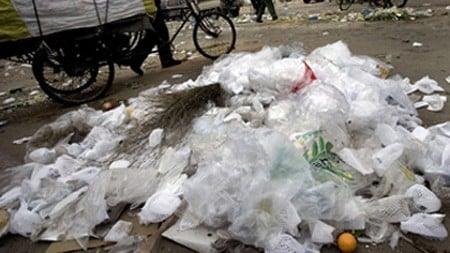Islamabad:
Pakistan generates nearly two million tonnes of plastic waste per year, 86% of which are poorly managed, seriously harming human health and the environment, according to the World Wide Fund for Nature-Pakistan (WWF-Pakistan).
In a statement published during World Environment Day, WWF stressed that more than 1.7 million tonnes of plastic are found in discharges, open discharges, navigable tracks and even food systems – placing Pakistan among the first 10 polluting plastic countries in the world.
WWF-Pakistan has noted that plastic pollution is now one of the most urgent environmental challenges in the country, significantly contributing to the degradation of ecosystems, loss of biodiversity and water contamination.
Pakistan also ranks among the highest in South Asia for mismanagement of plastics, by combining urban waste systems more and increasing public health risks.
Globally, plastics have revolutionized industries due to their low cost and sustainability. However, the proliferation of single -use plastics (SUP) – such as bottles, bags, packaging and cutlery – has created an increasing crisis. According to the United Nations Environment Program, around 400 million metric tonnes of plastic waste is generated worldwide, 36% of which consists of SUP.
A study in 2023 of Pakistan Environmental Protection Agency revealed that less than 10% of the country’s plastic waste was recycled. The rest contributes to the overflow of discharges, to an ineffective diversion of waste and to pollution due to a lack of integrated waste management and a limited investment in recycling infrastructure.
Plastic packaging, which constitutes 40% of global plastic production, is particularly harmful because of its non -biodegradable nature. Composed of lasting polymers such as polyethylene and polystyrene, these materials persist in the environment for centuries, polluting land, rivers and oceans.
Studies estimate that more than 14 million tonnes of plastic waste enter the oceans each year. Microplastics – tiny fragments resulting from the degradation of plastic – have now been found in seafood, drinking water and even human blood.




